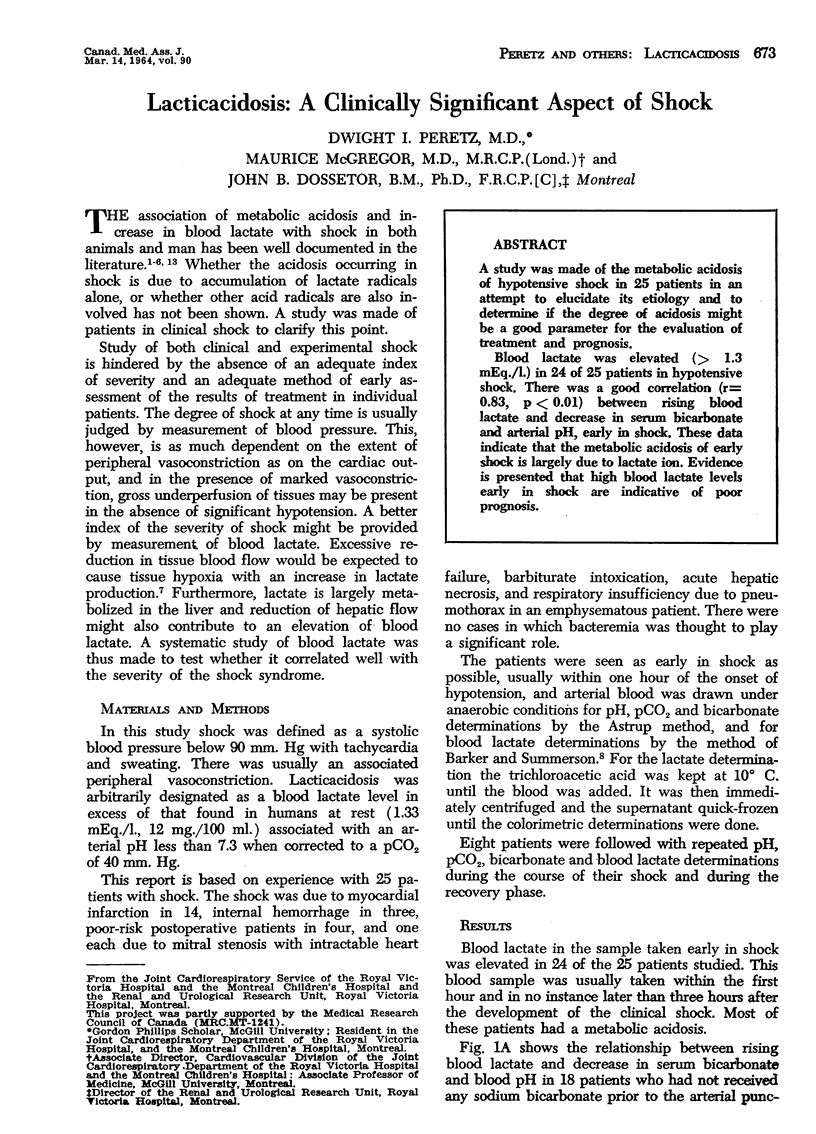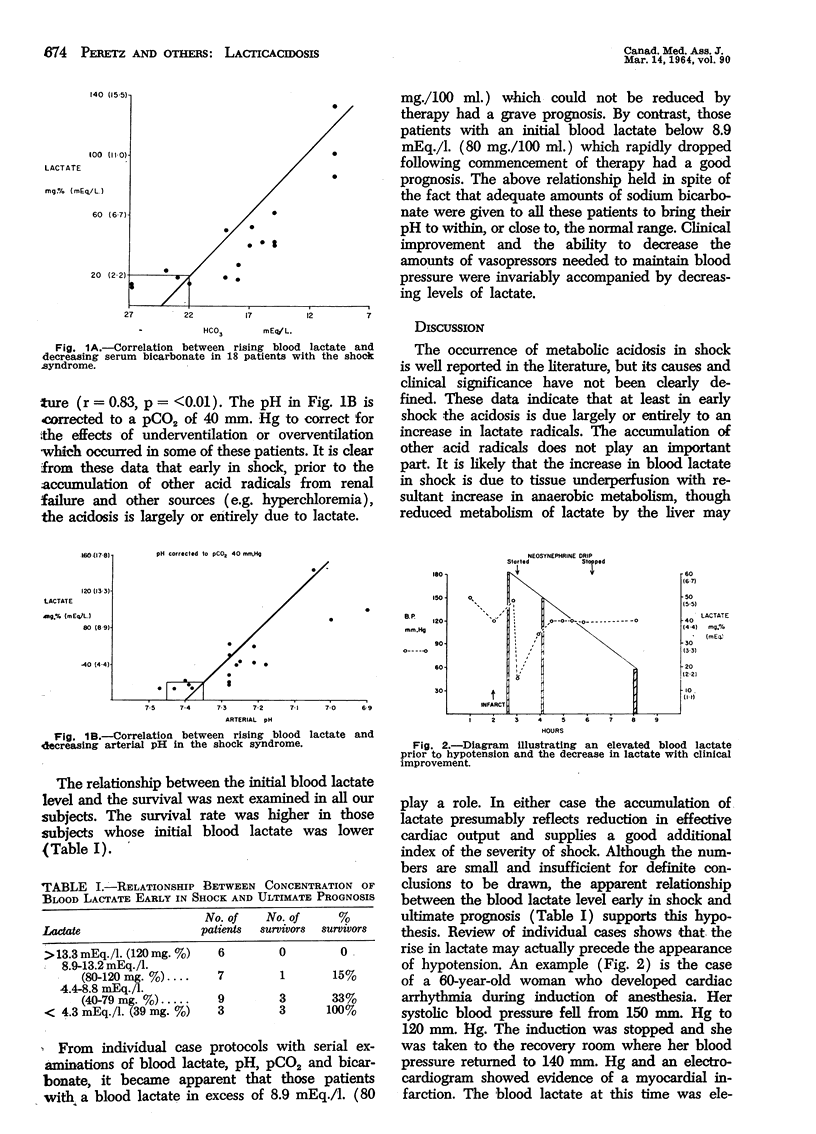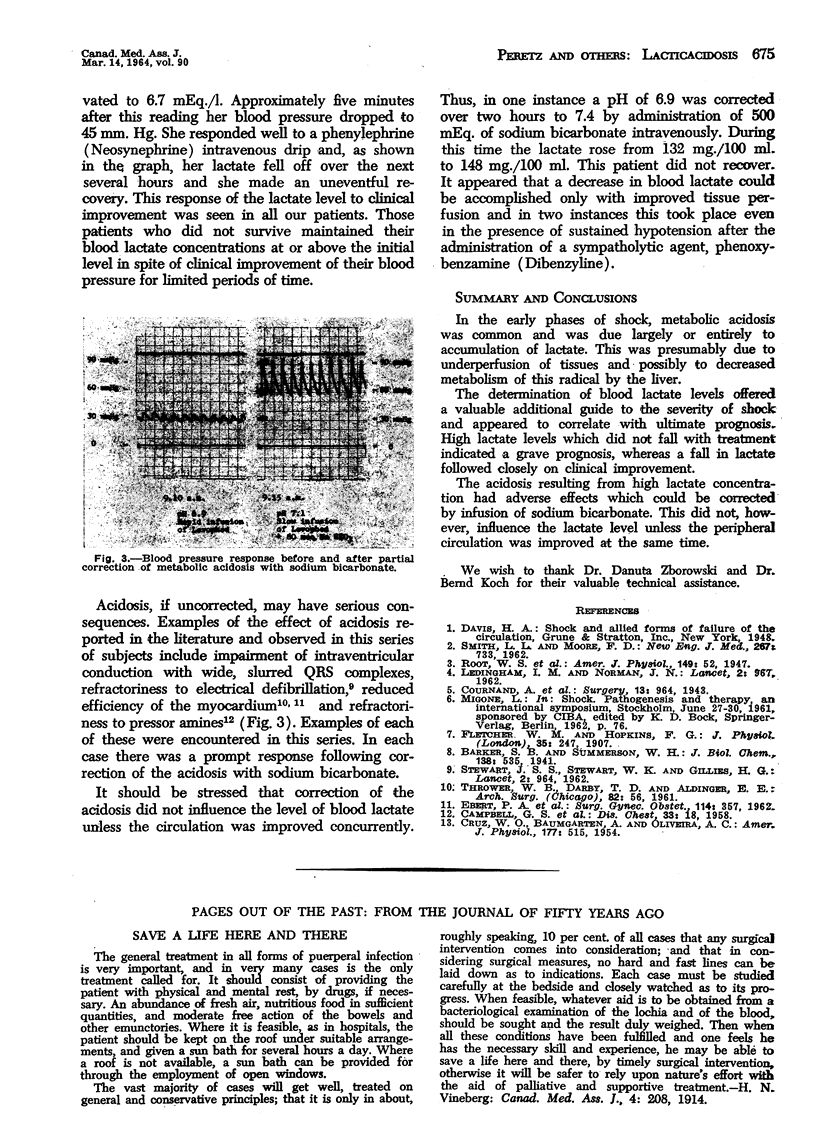Abstract
A study was made of the metabolic acidosis of hypotensive shock in 25 patients in an attempt to elucidate its etiology and to determine if the degree of acidosis might be a good parameter for the evaluation of treatment and prognosis.
Blood lactate was elevated (> 1.3 mEq./l.) in 24 of 25 patients in hypotensive shock. There was a good correlation (r= 0.83, p < 0.01) between rising blood lactate and decrease in serum bicarbonate and arterial pH, early in shock. These data indicate that the metabolic acidosis of early shock is largely due to lactate ion. Evidence is presented that high blood lactate levels early in shock are indicative of poor prognosis.
Full text
PDF


Images in this article
Selected References
These references are in PubMed. This may not be the complete list of references from this article.
- CRUZ W. O., BAUMGARTEN A., OLIVEIRA A. C. Objective evaluation of the intensity of shock induced by antiplatelet serum in the dog. Am J Physiol. 1954 Jun;177(3):515–522. doi: 10.1152/ajplegacy.1954.177.3.515. [DOI] [PubMed] [Google Scholar]
- STEWART J. S., STEWART W. K., GILLIES H. G. Cardiac arrest and acidosis. Lancet. 1962 Nov 10;2(7263):964–967. doi: 10.1016/s0140-6736(62)90729-8. [DOI] [PubMed] [Google Scholar]
- Vineberg H. N. SEPTIC PUERPERAL INFECTION, DIAGNOSIS AND TREATMENT. Can Med Assoc J. 1914 Mar;4(3):201–208. [PMC free article] [PubMed] [Google Scholar]



